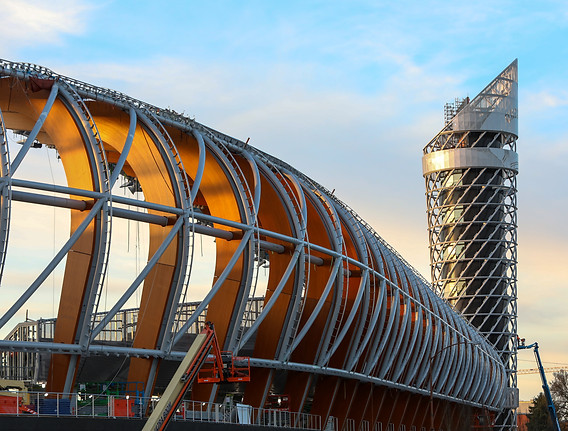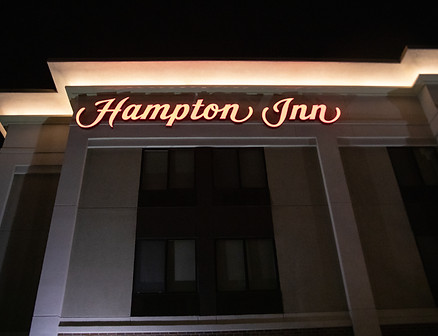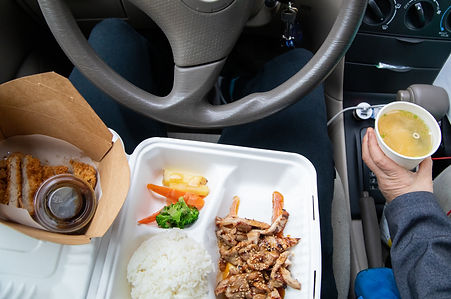The Road Across Quarantined America
A mother and son's journey along an uncertain road home

Stores across the nation close because of lack of business (Jay Bendlin)
Seven in the morning in a dim-lit hotel room in Des Moines, Iowa; a text reads “Dad has a 102+ fever.” At that moment; confusion, freight, frustration, and worry crept into my mind. The remaining 17 hours and eleven hundred miles remaining seemed so far away, yet so close. I thought this is why I’m going home.
Months before COVID-19 struck the world and put society to a blistering halt, I was offered an amazing opportunity. Not only an internship photographing the Track and Field Olympic trials in June, but working alongside the talented staff of Tracktown USA to bring the best coverage of USA track and field.
For a short while, everything was good. Connections pulled through, university credits allowed time off from school and I had the full support of friends and family.
Then, around the middle of February, news hit the wire of this new virus named ‘Coronavirus’ or ‘COVID-19’. Similar to my fellow Americans, I naively told myself and close friends, “It’s not in the U.S., there’s nothing to worry about.”

The construction of Hayward Field on the campus of the University of Oregon. The facilities were planned to be used for the 2020 Track and Field Olympic trials and 2021 World Athletics World Championship ( Jay Bendlin)
Almost exponentially, we all began to experience the effect on every part of our lives. Just in the sports world, Ivy league universities canceled their seasons first, then the NBA suspended their games and March Madness was abruptly taken from us deeming this month, March Sadness.
But even then, we were all in denial.
My family called and said it was time to come home. With no definitive end of this pandemic in sight, they wanted me back in New York, rather than alone on the other side of the country.
Without hesitation, my mom, mom of the year, hopped on the next plane out of Newark.
“The plane is empty,” she texted from the gate. “There must be 20 people on this entire plane.”
After a momentary layover in Seattle, she arrived in Eugene where I picked her up with a warm hug and a sigh of relief. One last night in Eugene before it was time to trek home.
Oregon had not yet been hit the same way New York had, so the next morning, we began day one with a stroll to Hayward Field. We popped into a coffee shop and walked past construction workers - it seemed as though the Olympic trials would happen in June and we would see fans in the stands cheering for their favorite athletes trying to punch their ticket to Tokyo in the summer.
Leaving Eugene, our first night’s destination was Boise, Idaho.
I was wrong.

The Hampton Inn Boise, the former workplace of Deronda Mejorada (Jay Bendlin)
Hotels were empty enough everywhere, it was easy to get a room. Arriving at an empty Hampton Inn, we were greeted by a friendly receptionist. The on-duty manager Deronda Mejorada cheerfully told us about her three children, how each child was affected by the virus. Her 25-year-old son was stuck on a military base in Japan, her 23-year-old daughter’s massage therapy school closed and with it, her hopes and dreams of becoming a massage therapist was put on hold, and her youngest, an 18-year-old boy, is missing the best times of high school by cutting his senior year short. Then, with a shrug, she told us she would lose her job in two days.
However difficult her situation may be, Deronda continued to show optimism for the future. Despite how unpredictable her future may be, she kept a smile on her face and continued her job at the desk. She wrote a joke on a chalkboard by the front desk;
“With March and April pretty much canceled… the next holiday is…
Cinco de Mayo, sponsored by Corona,” it read.
The next morning, we left the hotel early with a ‘grab n’ go’ breakfast at the front desk and we resumed our trip across interstate-80. Day two was to drive through Utah and into Wyoming.
With some helpful lunch suggestions from a friend at Brigham Young University, we took a break for lunch in Ogden, Utah. While driving through the welcoming town, it almost looked deserted, shops were closed and sidewalks empty.
When we got to the recommended restaurant, we realized that most states had enacted social distancing protocols by shutting down dining areas in all restaurants. So we ordered and waited.
While waiting for our meals, the lovely hostess kept us company. She mentioned how quiet and lonely it felt without the friendly banter with the customers.
We received our food and ate our first meal of many in the car, before joining the truckers on I-80 through the mountains.

The empty streets of Ogden, Utah (Jay Bendlin)

Closed dining areas forces traveling families to eat in the tight spaces of motor vehicles (Jay Bendlin)
The road ahead was filled with a lot of commonalities. Besides changing biomes, the road had similar people the entire way; truckers rushing to make their deliveries and college kids traveling home with a backseat full of belongings, just like us.
We saw a multitude of states represented by the license plates on the cars and trucks we passed. The people all had the same expression on their faces, an expression we shared, the desire to get home as soon as possible.
With a majority of rest stops closed, we resorted to gas stations for our restroom stopping needs. Truckers racing to make delivery deadlines need a place to rest more than anyone else on the road. At the occasionally closed rest stops we passed, trucks could be seen pulled over on the side of the road so the drivers could rest.

A rest stop Starbucks was one of many restaurants and businesses forced to shut down (Jay Bendlin)
On the road, each state offered tips on stopping the spread of the virus promoted via electronic message boards.




Interstate 80, across all states, shared a common message to stop the spread (Jay Bendlin)
We continued to see the effects COVID-19 on small restaurants across the country. At a Chinese restaurant in Lincoln, Nebraska, an empty dining hall was lined with empty buffet trays. We waited as one sole employee finished cooking and preparing takeout orders finally came out. She apologized and took our orders. As we were leaving, she did as well, carrying bags of takeout to her car to most likely, deliver herself.

The dining room of restaurants feel deserted as state laws forced restaurants to close their in-person dining (Jay Bendlin)

Tired of being trapped in my 2007 Corolla, we decided to enjoy our lunch with furniture packed in the car in an open field. (Jay Bendlin)
The further we continued east, the closer the towns became. Rather than seeing “next exit 50 miles” we started seeing pop up towns and gas stations all along I-80.
As we approached Chicago, we flirted with the idea of taking a quick detour into downtown. Every time we visited Chicago, it was full of people. We were curious - how would it look now?
We were not on the road to enjoy the ride. Making detours and actively entering a possibly populated landmark is the complete opposite of what the entire country was told to do - Keep social distance. Stop the spread. We decided to do our part and kept our eyes on I-80 and kept going.
This sparked a new conversation on the road, what next?
Will this be a new norm?
Will we ever go back to the way things were?
Nobody knows the answers to any of these questions. Even when the world starts to go back to normal, it will be nearly impossible to forget this time - that we had to wait in line six feet apart outside Trader Joes, every school was closed and teachers were scrambling to learn how to teach online, sad stories of people losing their jobs and of course, the tightness in the chest when we turn on the news to find out that there were hundreds of new cases of COVID-19. It will be hard to not gag when smelling hand sanitizer. And it will not be possible to forget the way we felt so close together - six feet apart.
Hampton Inn receptionist Deronda Mejorada was more worried about the way our society is handling this crisis. With hoarding of toilet paper and hand sanitizer just beginning, she said she fears for people’s priorities. “It shows where our society is going,” she said. “People are putting themselves before others.”
Yes, I agree with Deronda, but for every roll of toilet paper hoarded, there is a nurse working a triple shift at the hospital. Every hour we spend watching Netflix on the couch, there are truck drivers who are spending an extra hour on the road to deliver fresh groceries to stores, and for every Zoom call that grandparents are making to see grandkids who only live down the street, there is that special family member who will fly across the country and drive you to safety.
I still have not hugged my family, I continue to wave to my grandparents from the driveway and I am waiting for life to resume.